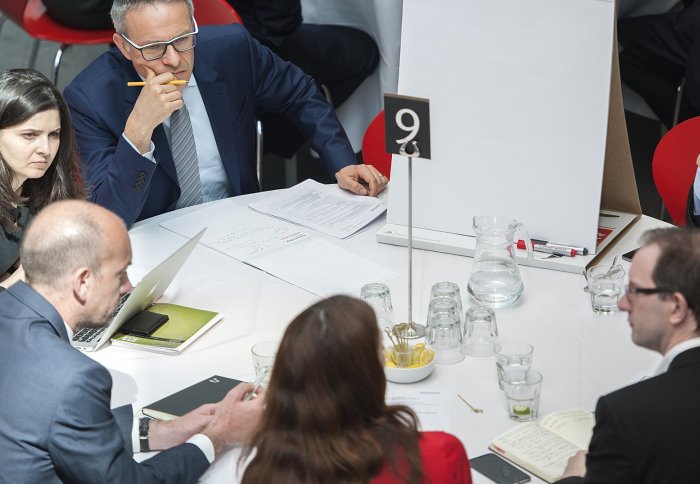Climate Q&A: How can universities help businesses go further?

Industry leaders gathered to discuss the opportunities and risks in a climate-friendly future. We asked them how academia can help their companies.
These issues were addressed at the Mobilising Business, Acting on Climate conference yesterday, organised by Imperial College Business School with the Grantham Institute - Climate Change and the Environment.
The event brought together industry and academic leaders at Imperial College London's South Kensington Campus to discuss how businesses can manage risks and take advantage of opportunities involved in a climate-friendly future.
Alexandra Cheung, Digital Communications Officer at the Grantham Institute, asked attendees, "What do you see as the role for universities as educators and researchers to support your company's work?"
Susan Gill, BT
"Universities have a big part to play in our research and innovation; in thinking about the future and how to embrace new trends that might be coming up. This helps us make a difference for our customers, and this is what's most important to us."
Richard Profit, PepsiCo
"The role of universities is to push leadership thinking beyond the conventional, and to stimulate conversations that create change."
John Westmacott, Land Energy
"The key thing for universities to do is drive research on how fossil fuels are priced on the market. Smoking out all the external costs we see in fossil fuels will mean can have a clear pricing model to benchmark the cost of renewable energy against."
Arne Eik, Statoil
"For the transition to a low-carbon energy future to succeed, we need young, brilliant people, which many universities can offer to the world."
John Scott Kerr, Future Biogas Limited
"Training our management team. Our Managing Director, our Chief Financial Officer, Head of Business Development are alumni from the College or the Business School and our Head of Operations has just joined the MBA programme."
Jeremy Daines, Oleum Khaos
"I would like to see academic institutions supporting and promoting pollution remediation as a simple way to avoid the calamity of the warming planet. Economists and policymakers consider it free to pollute the atmosphere, unlike the Victorian sewerage system that we all pay for. But if we paid for pollution by factoring it into the cost of a product, rather we use every day, then this would make a big difference."
Charlotte Wolff-Bye, Statoil
"I see the role for educators and universities to bring new insight to help our businesses run. Sustainability this is a big area where we need much more innovation and creativity and new perspectives."
Mike Barry, M&S
"In future I would like to see universities and businesses working more closely together to come up with more innovative solutions to creating a low carbon economy and pioneering more sustainable research."
Article text (excluding photos or graphics) © Imperial College London.
Photos and graphics subject to third party copyright used with permission or © Imperial College London.
Reporter
Ms Alexandra Franklin-Cheung
Centre for Environmental Policy